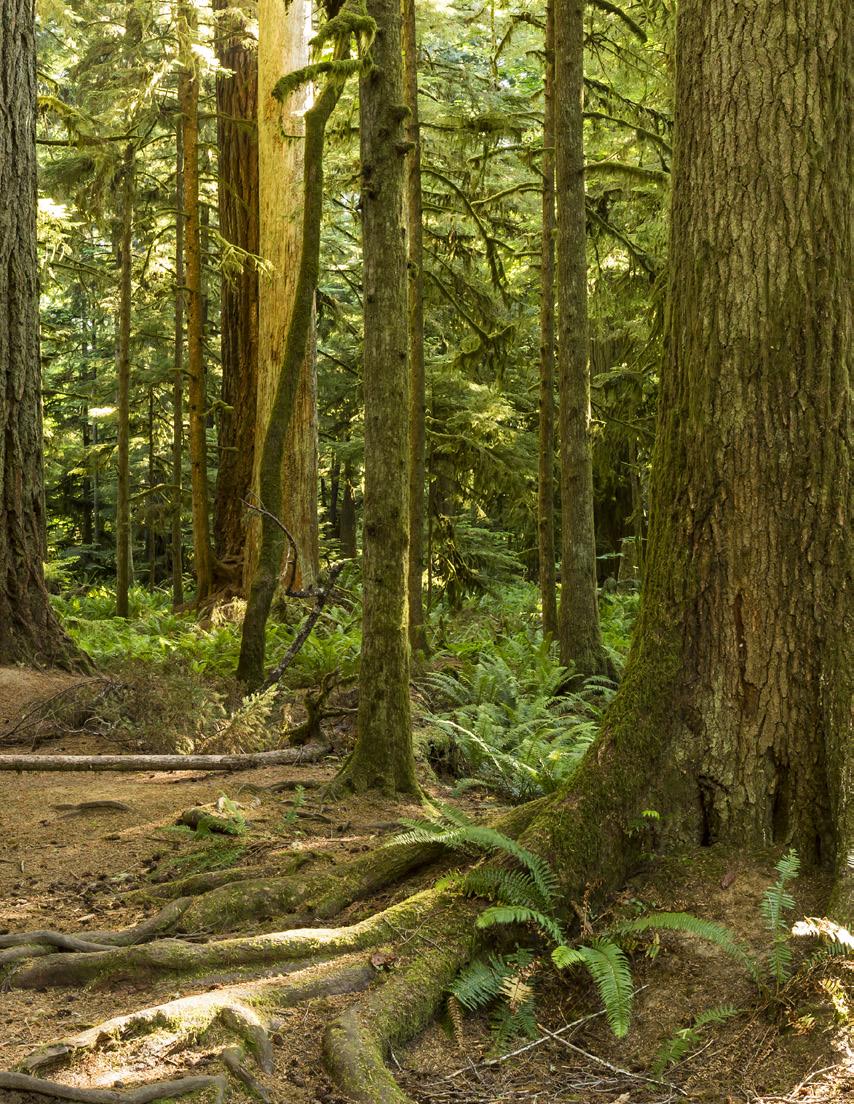
2 minute read
Upgrading climate adaptation skills
The Climate Vulnerability and Adaptation Micro-Certificate helps professionals find solutions in a changing world
Less than 15 years ago, climate change was still a hotly debated topic in public and political spheres – despite mounting evidence from scientists around the world of the warming effect caused by the release of carbon dioxide and other greenhouse gasses from human activities. Today, industries and governments alike are stepping up to tackle the climate crisis, and greenhouse gas reduction targets and policies have become commonplace across sectors.
Advertisement
Within forestry, working professionals in the public and private sectors with knowledge of climate science and sustainable forest management are better positioned to manage and reduce activities that contribute to climate change. However, with new innovations and best practices being discovered all the time in the field of climate science, professionals need continuing education to stay up-to-date.
UBC Forestry’s Micro-Certificate in Climate Vulnerability and Adaptation (CVA) is an eight-week, online program that introduces students to real-world applications and case studies in sustainable forest management. The course helps students understand how to apply climate change science, models and frameworks to assess climate change vulnerabilities and develop sustainable forest management systems.
“This course fills a gap for training in management practices and the application of new tools in the workforce,” says CVA Program Director and Lecturer Sheri Andrews-Key
Students can complete modules within the course at their own pace and outside of working hours, making it easier for them to balance their education with work and family responsibilities.
“By providing this training in a flexible manner and in an online environment, we are helping to take the pressure off of students to help meet their skills training needs more easily.”
There are plenty of opportunities to connect with professors and students in the course, such as weekly, live-session coffee hours that include a guest speaker presentation on a course-related topic.
“We have had students take this course from South Korea, Iceland, South America and many other countries,” says Sheri. “Despite the difference in time zone, the flexibility of CVA and its different schedule options allow students from around the world to come together to learn and share information.”
“The focus is on developing skills and competencies,” Sheri adds. “Students who pass will have attained a new understanding that can apply to their unique situations and local contexts.”
Former CVA student, Chris Gruenwald , director of forestry with the City of Mission, was impressed by how the program exposed him to “formal methodology to identify where the Mission Municipal Forest is vulnerable to impacts from climate change,” he says.
“CVA helped me see where we are deficient in knowledge and resources, and how to develop strategies to adapt to climate change.”
“Over the past 10 years, I have noticed the extremes in weather both in winter and summer months, which demonstrates to me that climate change is occurring and is not some far-off esoteric concept,” Chris adds. “Climate change is the challenge of our time; and, we all have a part to play in addressing it.”
Find more information about CVA and UBC Forestry’s three other Micro-Certificates: Co-Management of Natural Resources, Forest Carbon Management and Climate Action and Community Engagement, at: forestry.ubc.ca/programs/certificate
Greenhouse gas emission targets by the numbers
The Government of Canada has set a target to cut the country’s greenhouse gas (GHG) emissions by 40 - 45% below 2005 levels by 2030, with a goal of net-zero emissions by 2050. In BC, the provincial government has set incremental GHG reduction targets, starting with 16% below 2007 levels by 2025 and ending with 80% by 2050.










